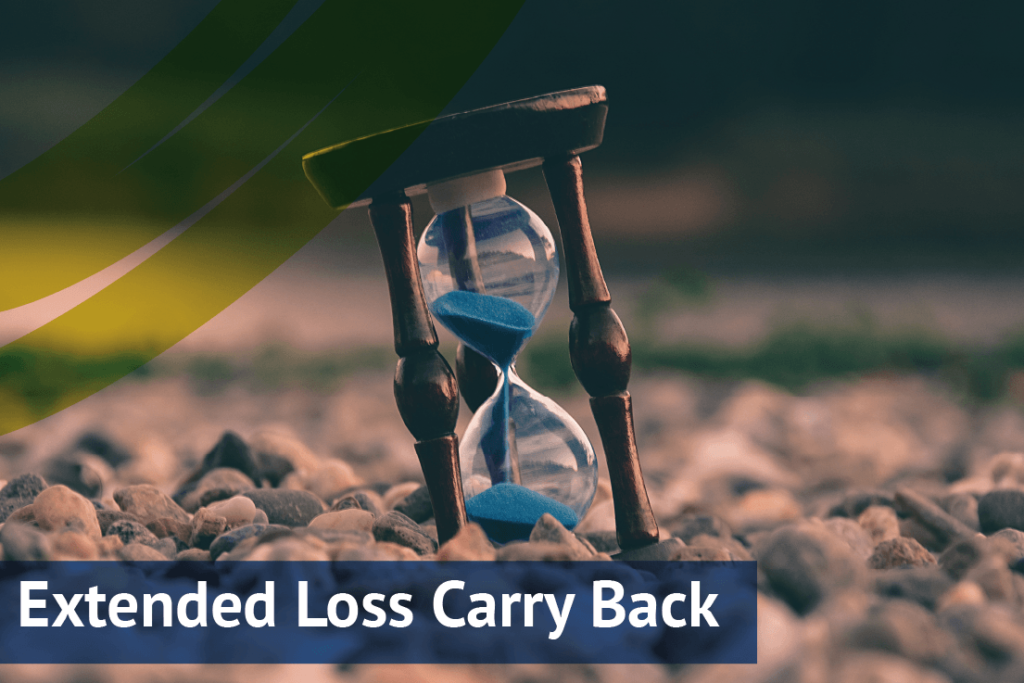Extended Loss Carry Back
5th August 2021
In March 2021, the government extended the carry back of losses for businesses. There is a temporary extension to the carry back rules and the period of time to claim trade losses. As announced in the Budget 2021, the period for loss carry back is extended from one year to three years for accounting periods ending between 1 April 2020 and 31 March 2022.
Find out how the extended loss carry back can affect your business and how this could potentially generate a repayment of tax for two additional years.
What are the current rules for Loss Carry Back?
Sole Traders and Partners
At present, a sole trader or partner that suffers a trading loss during an accounting period can claim that loss against the total earnings of the tax year of the loss and/or the previous tax year.
Alternatively, losses can be carried forward to be offset against trade profits in future tax years. This will occur automatically in respect of any unused losses.
Companies
Companies can claim for the loss against total profits in the accounting period of the loss and/or the previous year.
Alternatively, losses can be carried forward to be offset against total profits in future accounting periods. This will occur automatically in respect of any unused losses.
Temporary extension to the Loss Carry Back
From April 2020 to 31 March 2022, trading losses made by businesses can be carried back for three years rather than one. This can be for companies, sole traders or partners.
It varies from the original year as the relief is capped. The claim extends to £2 million of unused losses per tax year (or accounting period for a company.
The changes come in the wake of the continuing efforts from the government to help businesses who have been affected by Covid-19. The extended relief could provide repayments of tax paid within the previous 3 years, which will prove extremely helpful for some businesses.
Losses must be carried back on a “last in, first out” basis. This means that losses must be claimed against the most recent of the previous 3 tax years first.
Corporation Tax rules change
There have been a number of changes to corporation rules that limit relief for losses. These include:
- Transfer of a trade where there has been a change of ownership;
- Group relief
- Loss restriction computation
- The deductions allowance, including the group allocation statement.
The aim of these changes is to lessen administrative work within businesses and assist in ensuring that the legislation is effective.
Who can benefit from this?
Companies, sole traders and partners can benefit from the extended loss carry back.
Claims must be put forward within 2 years of the end of the accounting period in which the loss is made.
As a claim is usually made in a person’s tax return for a sole trader or partner, a stand-alone claim to access the relief can be made. It must specify the business name and time period, the amount, and how the loss is used.
Talk the experts
If you have questions about if you can claim the extended loss carryback and the benefits to your business, please don’t hesitate to get in touch with our Tyne and Wear-based team.
All information correct at time of going to print/live and on the best knowledge and understanding of the author at the time. This article is for general information only and does not constitute financial advice or recommendations for individual circumstances. No responsibility is taken for any actions taken on the base of the information within this article.





